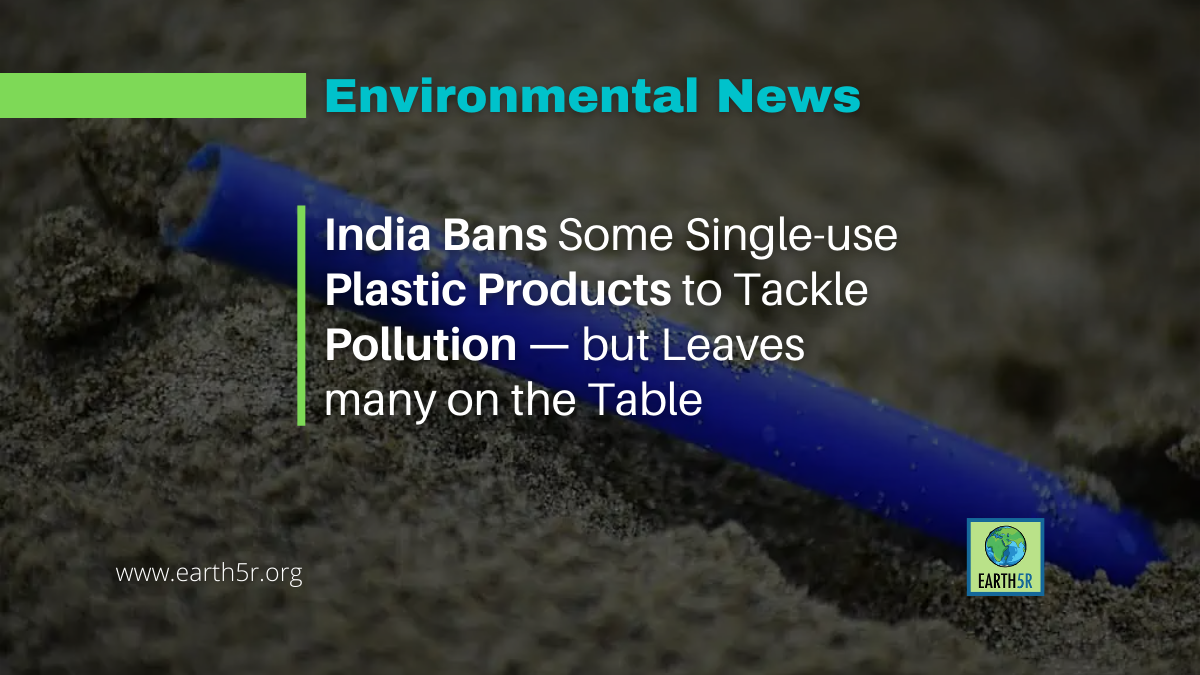Tackling Single Use Plastic in India: A Step Towards Sustainability
India has taken a major step in addressing its plastic waste crisis by banning 19 single use plastic items, including earbuds, plastic balloon sticks, candy and ice cream sticks, packaging films, cutlery, and straws. This ban, while significant, leaves out commonly used items like plastic bottles and chip packets, which still contribute heavily to the country’s growing plastic problem.
The Problem: Alarming Data and Consequences
India generates an estimated 3.5 million tons of plastic waste annually, with single use plastics making up a substantial portion. These items are typically used for mere minutes before being discarded, yet they persist in the environment for hundreds of years. Most of this waste ends up in landfills or the natural environment, where it harms ecosystems and wildlife. For instance, marine animals often mistake plastic for food, leading to injury, starvation, or death.
The production of single use plastics also has a massive carbon footprint, contributing to greenhouse gas emissions at every stage of their lifecycle from manufacturing to disposal. According to the Central Pollution Control Board, over 60% of India’s plastic waste is mismanaged, meaning it isn’t adequately recycled or disposed of, exacerbating environmental degradation.
The Solution: A Multifaceted Approach
India’s ban on 19 single use plastic items is a crucial starting point, but tackling the plastic crisis requires a broader, systemic approach:
- Promoting Alternatives: Industries need to develop and adopt sustainable alternatives like biodegradable materials, compostable packaging, and reusable products. Incentives and subsidies for businesses producing eco-friendly products can accelerate this shift.
- Improving Waste Management: Strengthening waste segregation, collection, and recycling infrastructure is essential. Community-led initiatives for composting and recycling can complement these efforts.
- Raising Awareness: Public education campaigns can encourage individuals to reduce their reliance on single use plastic by switching to reusable items like cloth bags, steel straws, and glass containers.
- Policy Expansion: Future policies must target high-impact plastic items like bottles and multilayered packaging while enforcing stricter penalties for violations.
How Earth5R Helps
Earth5R is actively addressing the single use plastic problem through innovative programs and community-driven initiatives. The organization conducts clean-up drives and educational workshops to raise awareness about the dangers of single use plastics. Its app empowers individuals to track and reduce their plastic consumption, offering practical alternatives and real-time impact assessments.
Additionally, Earth5R supports a circular economy by upcycling plastic waste into usable products and promoting biodegradable packaging. By working with local communities, policymakers, and businesses, It bridges the gap between awareness and action, creating sustainable, long-term solutions to the plastic crisis. Through collective effort and innovation, India can move closer to a future where convenience no longer comes at the expense of the planet’s health.
Plastic manufacturers had asked the government to delay the move, arguing it would cause job losses and high inflation. But India’s Environment Minister Bhupender Yadav said at a press briefing the ban had been in the pipeline for a year and wouldn’t be delayed. Plastic bags had already been prohibited by the government late last year and now, the move is being expanded to a broader range of plastic products.
To read top environmental news from India, please visit https://earth5r.org
Source: ZMEScience



